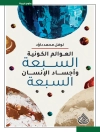In her novel ‘Kwan-yin, ‘ Stella Benson weaves a captivating narrative that explores the intersections of spirituality, culture, and the human experience through the lens of her characters’ journeys in Eastern Asia. The literary style combines lyrical prose with rich imagery, inviting readers into a world permeated by Eastern philosophy and the mystique of the divine feminine. The backdrop of the story is not only a vibrant exploration of the cultural tapestry of China but also a reflection on identity, faith, and the nuances of international encounters during the early 20th century. Stella Benson, a pioneering female author of the early 1900s, draws from her own experiences as a traveler and observer of Eastern philosophies. Born into a progressive English family, she was surrounded by a cultural openness that encouraged her voracious curiosity about the world. Her inclination to write about distant lands stemmed from her profound appreciation for the complexities of human relationships and the spiritual dynamics that bind individuals across cultures, making her reflections in ‘Kwan-yin’ deeply informed and emotionally resonant. Readers seeking a profound literary exploration that transcends mere travelogue will find ‘Kwan-yin’ an engaging and thought-provoking work. Benson’s keen insights into the human psyche and her ability to evoke the beauty and challenges of diverse cultural landscapes render this book not only engaging but also invaluable for contemporary discussions on cultural empathy and interconnectedness.
A propos de l’auteur
Stella Benson (1892–1933) was an English novelist, poet, and travel writer known for her unique blend of mysticism, feminism, and social critique. Born into an affluent family with literary ties, Benson’s health was poor from an early age, influencing her to travel frequently and reflect these experiences within her literary works. She debuted as a novelist with ‘I Pose’ (1915), a work that introduced her insightful interrogation of societal norms. ‘Kwan-yin’ is one of her later works, continuing her exploration of spiritual and social themes through vivid, sometimes fantastical narratives. Her writings often juxtapose the spiritual quest with struggles against societal constraints, particularly those faced by women. This blend of fantasy with biting social commentary, combined with her lyrical style, makes Benson’s oeuvre distinctive in early 20th-century English literature. Her most celebrated book, ‘Living Alone’ (1919), encapsulates her literary style—a narrative at once surreal, poignant, and socially aware. Despite a relatively short life, Benson’s travelogue ‘The Far-Away Bride’ (1930) and other writings solidified her reputation as an acute observer of human nature. Throughout her diverse and geographically disparate works, Stella Benson remains a compelling feminist voice and an imaginative chronicler of her times.












